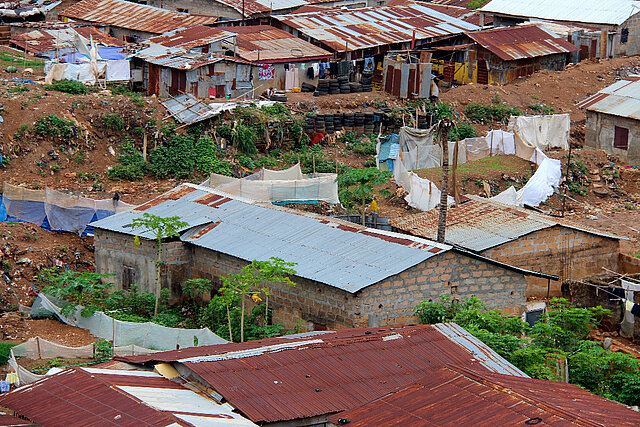Sierra Leone
Working together for a better health situation
The health system in Sierra Leone is not able to cope with the needs of the population. Young children die of treatable diseases because there are hardly any medicines, trained health workers or even medical knowledge. A lack of preventive care, hygiene and clean drinking water contribute to many diseases.
DIFÄM promotes the education and training of health workers through digital training courses and motivates young people to take their health situation into their own hands.
Webinars and education for better health

Political crises, natural disasters and the Ebola epidemic have marked Sierra Leone in West Africa. Despite the abundance of mineral resources such as diamonds, almost 80 percent of the population live below the poverty line. Many young people have never attended school and are unemployed. In order to survive, they burn electronic waste to extract raw materials out of it, or they prostitute themselves for food. Lifelong trauma, physical ailments and unwanted pregnancies are the consequences. Most women in Sierra Leone give birth at home, often under unhygienic conditions. Complications during pregnancy or birth endanger the lives of mother and child.
Sierra Leone's child mortality rate is the fifth highest in the world: one child out of ten dies before his or her fifth birthday! But the health system is too weak to respond to the needs of the population. Many children are physically underdeveloped due to malnutrition, and young children in particular die from diseases that should be treatable, such as diarrhoea. This is because there are hardly any trained health workers, nor medical knowledge or medicines. A lack of preventive care and hygiene is the trigger for many diseases: Only about a quarter of all children have access to clean drinking water. Many draw water from a river stream or a borehole, or draw from ponds and collect rainwater. As a result of patriarchal structures and the low rate of education, young people, women and children in particular have no opportunity to access information and knowledge about their health and have hardly any voice in society. This also affects emergency measures and public health care.
Together for health
In order to change this situation in the long term, well-trained professionals are urgently needed. In this context, especially Christian health institutions play an important role. Many years ago, these institutions joined together to form a Christian health network: the Christian Health Association of Sierra Leone (CHASL). Difäm supports this network in the training and further education of health workers through digital training courses and practical teaching units. Focal points include sexual and reproductive health, which is of great importance regarding the high number of young people and the high rate of teenage pregnancies.
In the neglected communities on the outskirts of Freetown, Difäm is breaking new ground with CHASL: instead of receiving external aid, young people are encouraged to take their health situation into their own hands and improve it.

